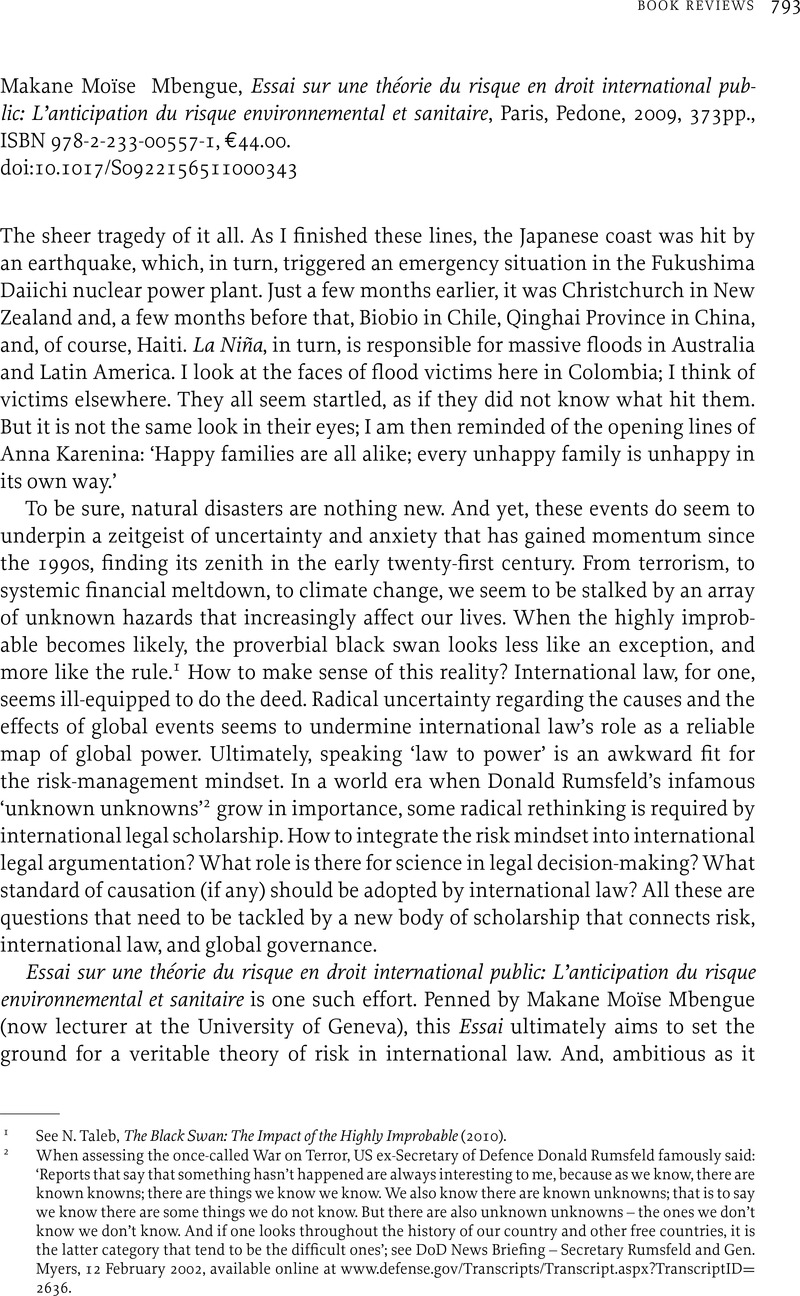Published online by Cambridge University Press: 05 August 2011

1 See N. Taleb, The Black Swan: The Impact of the Highly Improbable (2010).
2 When assessing the once-called War on Terror, US ex-Secretary of Defence Donald Rumsfeld famously said: ‘Reports that say that something hasn't happened are always interesting to me, because as we know, there are known knowns; there are things we know we know. We also know there are known unknowns; that is to say we know there are some things we do not know. But there are also unknown unknowns – the ones we don't know we don't know. And if one looks throughout the history of our country and other free countries, it is the latter category that tend to be the difficult ones’; see DoD News Briefing – Secretary Rumsfeld and Gen. Myers, 12 February 2002, available online at www.defense.gov/Transcripts/Transcript.aspx?TranscriptID=2636.
3 See Giddens, A., ‘Affluence, Poverty and the Idea of a Post-Scarcity Society’, (1996) 27 (2)Development and Change 365–77CrossRefGoogle Scholar.
4 See Ewald, F., ‘Risk in Contemporary Society’, (2000) 6 Connecticut Insurance Law Journal 365Google Scholar; this view is also implicit in most others’ accounts of risk outside Ulrich Beck's Risk Society; for an eminently readable example, see P. L. Bernstein, Against the Gods: The Remarkable Story of Risk (1996).
5 While the notion of ‘manufactured risk’ underlies the whole construct of the Risk Society, the expression is not included as such in Beck's 1992 book; perhaps the most explicit elaboration may be found in Beck, U., ‘World Risk Society and Manufactured Uncertainties’, (2009) 1 Iris 297Google Scholar.
6 See J. R. Searle, The Construction of Social Reality (1995), 8.
7 In the context of the Global Administrative Law project, see, e.g., A. Albanesi, ‘The WTO “Science-Fest”: Japanese Measures Affecting the Importation of Apples’, in B. C. S. Cassese et al. (eds.), Global Administrative Law: Cases, Materials, Issues (2008), 178.